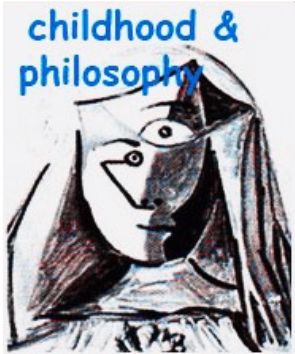philosophy in primary school a survey on teacher training
DOI:
https://doi.org/10.12957/childphilo.2023.71317Keywords:
philosophy, teaching, questionnaire, didactics, trainingAbstract
The article analyzes some of the results that emerged from a questionnaire administered in the academic year 2021/2022, aimed at investigating the point of view of primary school teachers regarding experiences of philosophical reflection with children.The idea of focusing attention on teachers lies in the belief that they are the main protagonists of philosophical practices with children, and that it is important to hear their voices. This contribution analyzes issues such as the training of teachers who intend to engage in these teaching experiences; the benefits that philosophy can bring transversally to improve learning in other disciplines; the possibility of developing critical thinking capacities in children; the increase of logical and argumentative skills; and finally the development of citizenship and social responsibility skills. A positive picture seems to emerge from the results of the questionnaire, where teachers show themselves to be proactive with respect to the possibility of understanding philosophical dialogue as a discourse that can be conducted with children of all ages. This leads, in turn, to the need to revisit normal teaching practices, and to the need for teachers to question themselves through targeted training. It is believed that the survey has positively stimulated teachers, even those who have never had direct experience with children's philosophy, and that it has shown how in a changing society, the figure of the teacher must change as well.
Downloads
References
Baldacci, M. (2010). Teoria, prassi e “modello” in pedagogia. Un’interpretazione della prospettiva. Education Sciences & Society, 1 (1), pp. 65-75.
Bruner, J. (1997), La cultura dell’educazione. Nuovi orizzonti per la scuola. Milano: Feltrinelli.
Calliero, C., Galvagno, A. (2010). Abitare la domanda. Riflessioni per un’educazione filosofica nella scuola di base. Perugia: Morlacchi.
Caputo, A. (2016a). Quando i bambini danno a pensare (donne à penser). Logoi. Ph – Journal of Philosophy, 6(II), pp. 9-20.
Caputo, A. (2016b). Philosophia ludens per bambini. Lo scenario teorico della proposta operativa. In Logoi.ph – Journal of Philosophy, 6(II), pp. 143-169.
Chaipperini, C. (2005). Filosofia e infanzia. In L. Rossetti e C. Chiapperini (a cura di), Filosofare con i bambini e i ragazzi. Atti delle giornate di studio di Villa Montesca. Morlacchi, Perugia.
Iiritano, M., Cianci, D. (2020). Pensare da bambini. La sfida di Amica Sofia. Trento: Erickson.
Santi, M. (2002). Conversazione con Matthew Lipman. In A. Cosentino (a cura di), Filosofia e formazione. 10 anni di Philosophy for children in Italia. Napoli: Liguori. Precedentemente pubblicato in “Prospettiva EP”, 6/1991.
Striano, M. (2002). Alcune considerazioni sulla formazione degli insegnanti in P4C. In A. Cosentino (a cura di), Filosofia e formazione. 10 anni di Philosophy for children in Italia. Liguori, Napoli. Precedentemente pubblicato in “CRIF-bollettino”, N.7/1997.
Zippel, N. (2017). I bambini e la filosofia. Roma: Carocci.




